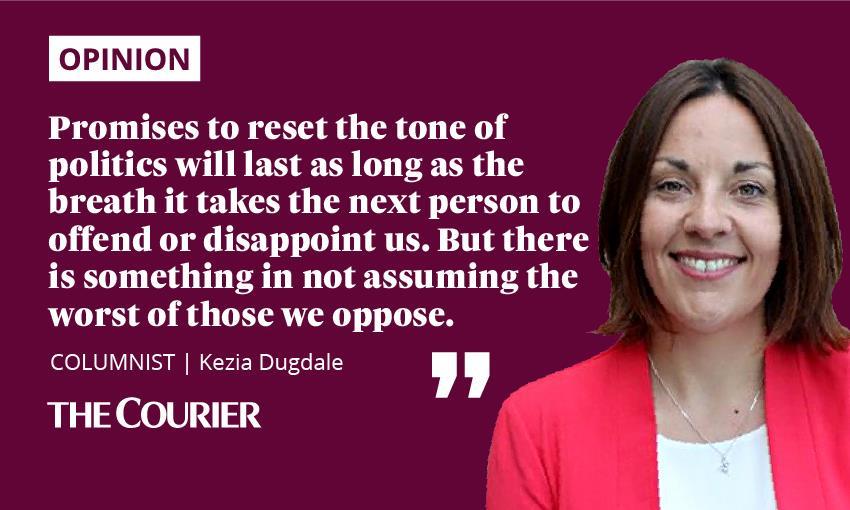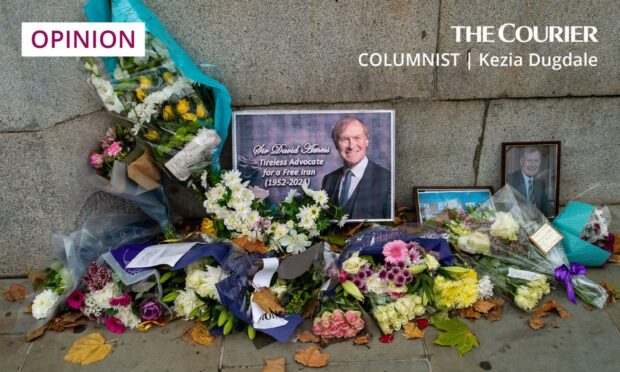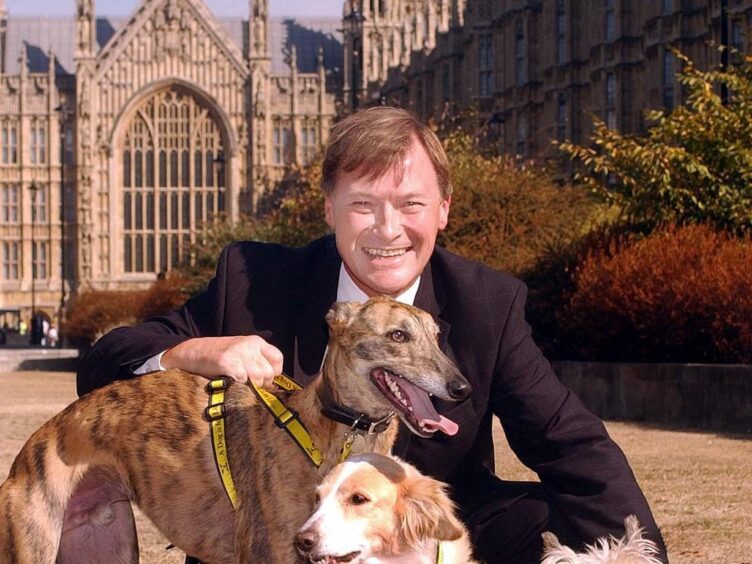I spend most Tuesday mornings now with William Hague, the former Foreign Secretary and Leader of the Conservative party.
It’s not a sentence I ever thought I’d utter. But each Tuesday we join forces to talk about the big news events of the day on Times Radio.
For most of my formative years he was very definitely a baddie.
He was the Tory teenager you’d see talking up Thatcherism in YouTube clips from the “glory days” of mass industrial decline.
He was the opposition leader facing Tony Blair across the Commons between 1997 and 2001, when Labour felt righteous and unassailable.

To my youthful mind he was the enemy.
Now he is a colleague and one of the most thoughtful and intellectually hefty people I know.
I like him a great deal because he applies the might of his mind to the big problems of the future. He offers solutions rooted in his values.
I might not always like the answers but I respect the process.
It’s proper politics and how it should be. A battle of ideas, rooted in values and principles.
The killing of Sir David Amess has shocked our political world to its core.
Beyond the obvious horror of the event itself and the sorrow of five children losing their father, there’s the shudder of repetition.
Just like Jo Cox, we’ve lost a democratically elected Member of Parliament to an act of violence that took place in the midst of a basic function of British democracy.
David Amess was serving as a politician, meeting the people he represented.
Constituency surgeries are the heart of our political system
William Hague tells a great story about being at dinner event during a major global summit.
The Foreign Secretaries of every major global force are pulling their napkins over the laps and making small talk before the food and William starts to tell a story about one of his constituency surgeries the week before.
But before he can get to the juicy bit, he notices his fellow dinner dates have no idea what he’s talking about.
What’s this thing called a surgery?
What do you mean you devote time in your diary to dealing with complaints about wheelie bins?
How can you be both the Foreign Secretary and be expected to find some interesting raffle prizes for the church fete and run a Christmas card competition?
I paraphrase but you get the idea.
It might be unique, but it is a long established expectation in this country that we have ready access to our politicians.
We may rarely use it, but they need to feel accessible. They need to feel of us, like us.
Like David Amess, the best politicians are a part of their communities
I’ve always been baffled by the trope that politicians don’t live in the real world.
A diligent politician will have a far better feel for their breadth and diversity of their community than most people living in it.
Your MP will have met more people in your town in a year than you will have in a lifetime.
They may not have livid experience of poverty and disadvantage but they will have witnessed it, just as they’ll have seen the trappings of great power, wealth and opportunity.
Being a politician is many things, but it’s also a job and when they leave for work in the morning, you expect them to come home. Utterly devastating news for the family of Sir David Amess
— Kezia Dugdale (@kezdugdale) October 15, 2021
They are far more rounded and complex than we give them credit for.
Seeking to help individuals through constituency surgeries is the best part of a politician’s job. At least it was in my experience.
I loved doing surgeries in church halls and community centres. I’d stand at the front door of supermarkets with winter gales blasting through.
For a long time I also offered home surgeries to constituents.
I would write to 200 people at time and give them a poster.
I encouraged them to put the poster in their window facing the street if they wanted to see me on a particular day and I’d rock up and chap their door.
Yes, I’d walk straight into complete strangers living rooms and sit down.
My mother would be horrified.
Jo Cox killing was my wake-up call
I stopped that after Jo Cox was murdered.
Nothing particularly awful or scary had every happened to me, but it just didn’t feel safe or right anymore.
I suspect that’s what all our elected representatives are feeling now. Unsafe and uncertain.
For many, that might be a completely rational reaction, because they’ve received death threats themselves in the past.
Or maybe it’s emotional because they’ve lost a friend and a colleague.
Because it could have been them.
My thoughts and love are with David’s family. They are all that matter now. This brings everything back. The pain, the loss, but also how much love the public gave us following the loss of Jo. I hope we can do the same for David now. pic.twitter.com/hwRN0PODPK
— Brendan Cox (@MrBrendanCox) October 15, 2021
Because whatever the root cause of that one horrific act of violence, it’s happened at a time when our political culture itself feels so very sick and desperately on edge.
There’s no one solution to this problem, just as there’s no one one explanation for the position we find ourselves in.
Platitudes are ten a penny. Promises to reset the tone of politics will last as long as the breath it takes the next person to offend or disappoint us.
But there is something in not assuming the worst of those we oppose.
To spend a moment in their minds and to consider the road they have travelled.
To commit ourselves to disagreeing better.

